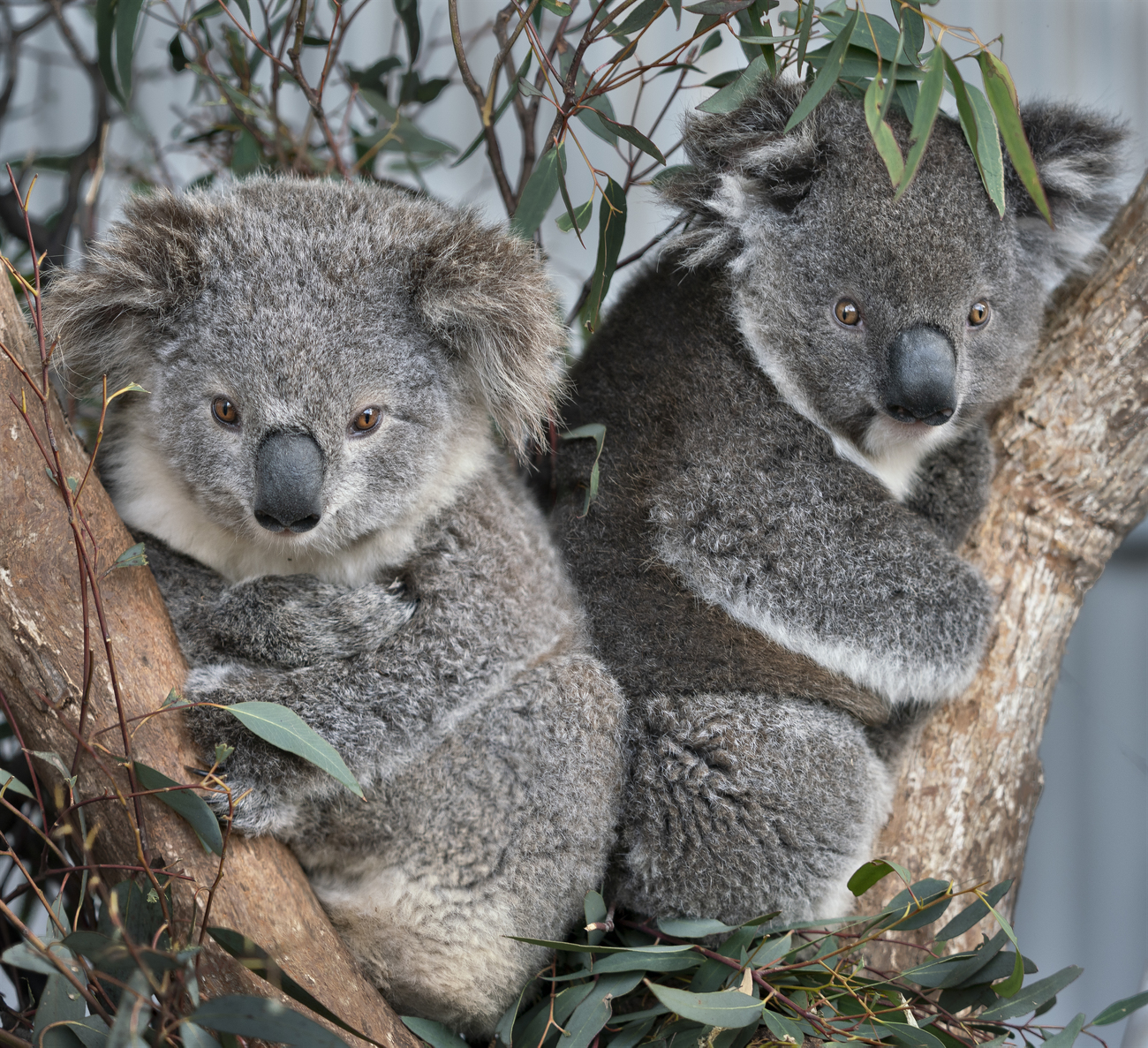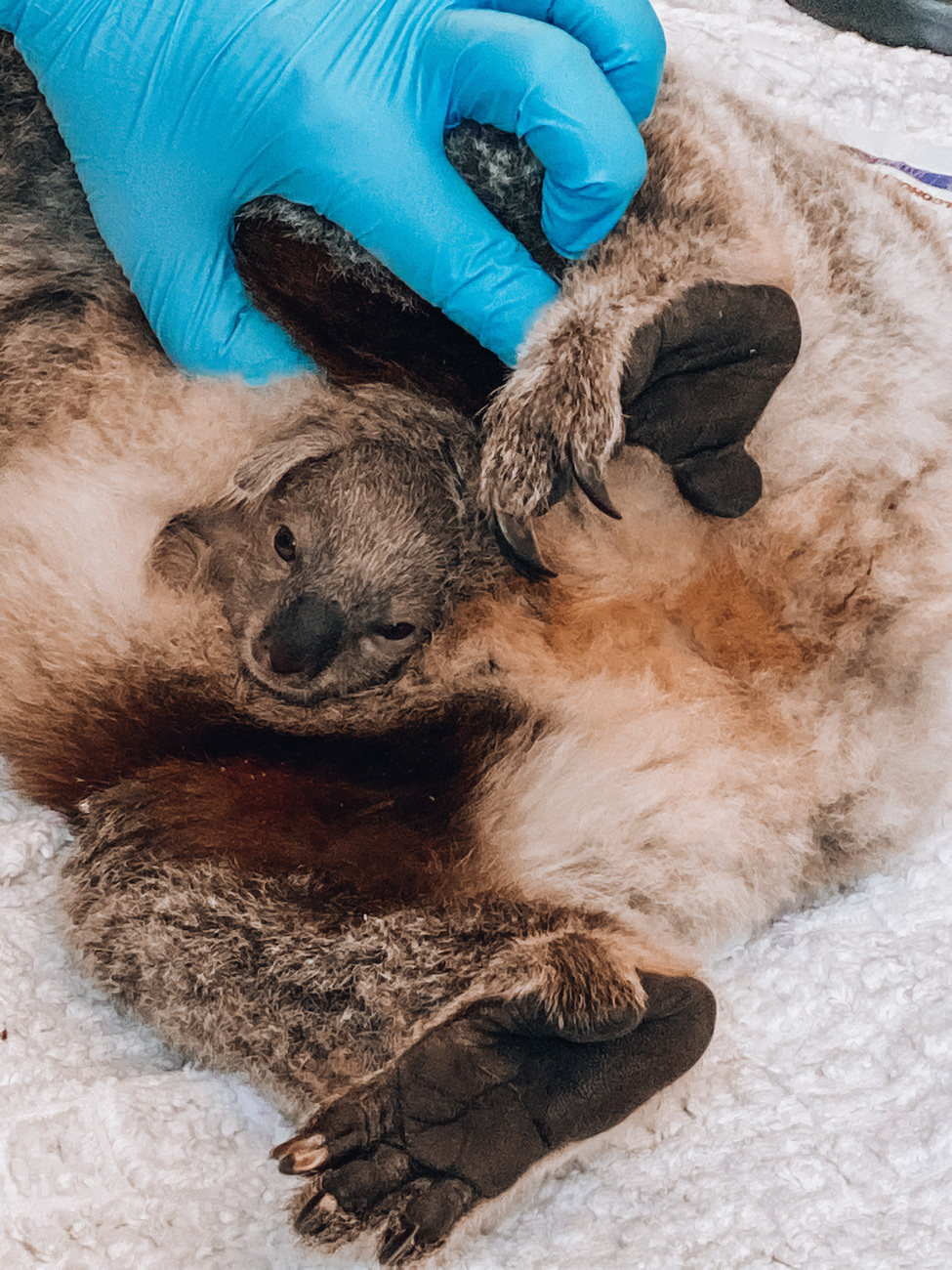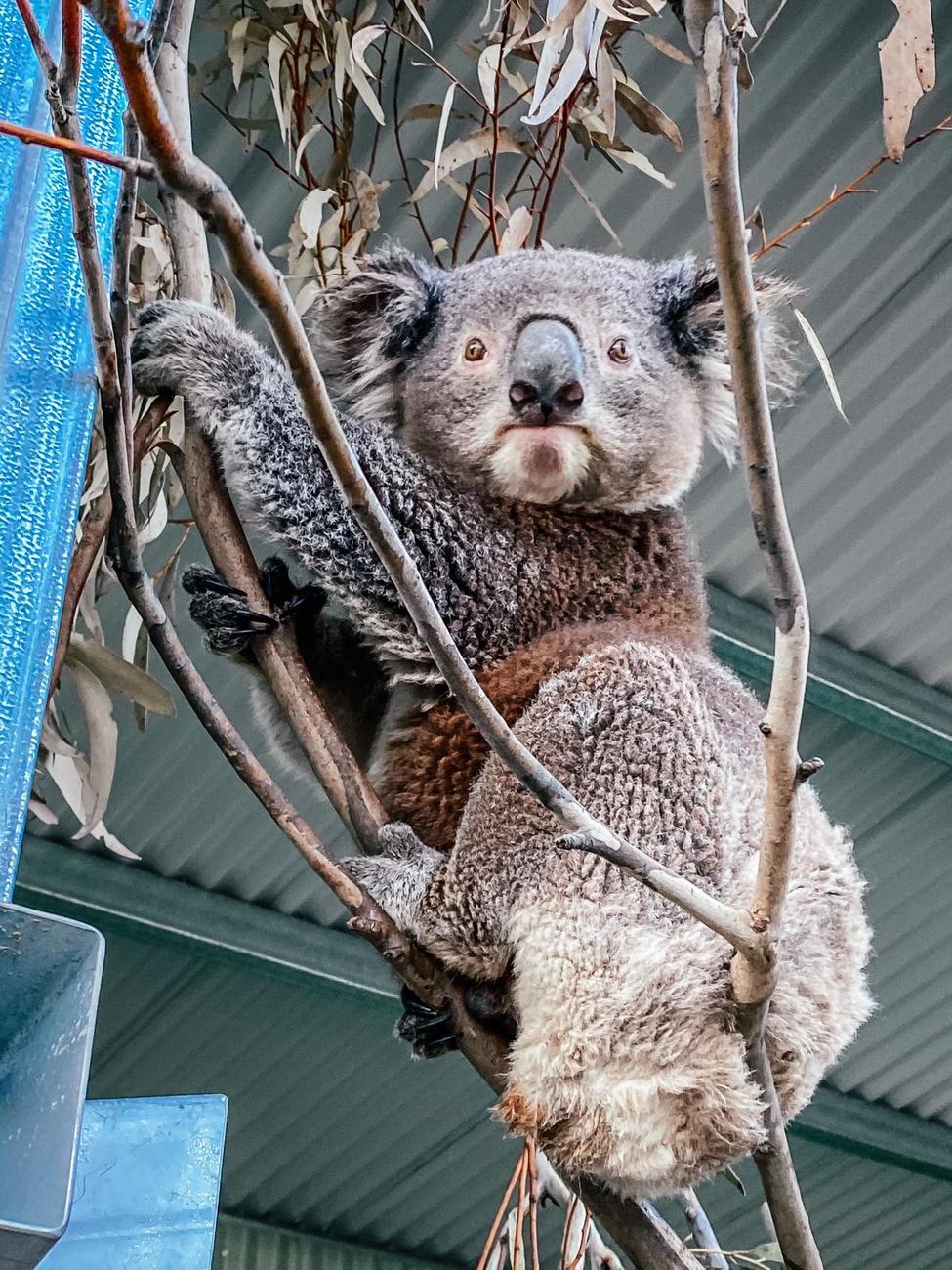Blog
Long’uro: one elephant’s story of immense resilience
Read morefrom rescue to release: bushfire koalas return to the wild

[28 August 2020] — The International Fund for Animal Welfare (IFAW) and USC Australia are pleased to share the story of four beloved koalas, returned to life in the wild outside of Cooma, New South Wales (NSW).
Jessie, Amelia, Mark and Jarrah were rescued from the site of Two Thumbs Wildlife Sanctuary, which was tragically destroyed during the catastrophic bushfires earlier this year. They were each found by Bear, IFAW x USC’s beloved detection dog, when he was deployed to the area to search for survivors.
In partnership with IFAW and the USC Detection Dogs for Conservation program, Bear has become a hero known for his ability to detect live koalas through the scent of their fur. These special skills are critical when searching for survivors who may be hungry, injured and dehydrated after devastating fires have decimated their habitat. Bear can smell what we cannot see.
The four koalas – including bushfire orphans Mark and Jarrah, and mother-and-joey pair Jessie and Amelia – made their way to the safety of Australian National University (ANU) where they received months of round the clock rehabilitative care from a team led by IFAW x USC friend Dr. Karen Ford. It was during this time that the team found an added and welcome surprise – a joey in Jessie’s pouch, now named Jazz!

This week, the team is back on site at Two Thumbs Wildlife Sanctuary, led by owner James Fitzgerald, to release all four koalas – plus joey – who have fully recovered and are being given a second and critical chance at life.
Koalas are highly dependent on the eucalyptus trees of their native range, and their chance of survival increases dramatically when returned to the same place.
“When we heard the devastating news of Two Thumbs Wildlife Sanctuary being destroyed this past January, we deployed Bear immediately to help search for survivors,” said IFAW’s wildlife campaigner, Josey Sharrad. “Bear brought a glimmer of hope amidst a sea of tragedy. With over 6,000 koalas killed in the New South Wales fires alone, every individual animal matters in the future of the species, and these koalas will be an important part of the recovery.”
USC Detection Dogs for Conservation co-founder Dr. Romane Cristescu said it was wonderful to see the results from the team’s hard work locating koalas across the burned landscape in 2019.
“These koalas had lost their food source and their habitat, so were at risk if they stayed,” Dr. Cristescu said. “When our team arrived with Bear at Two Thumbs Wildlife Sanctuary, James said he had very little hope of finding any koala survivors. Looking at the devastation, it was easy to understand why. Finding these koalas didn’t only bring hope for their welfare and survival, but also for the population as a whole to recover, and their special genetic makeup to be preserved.”

Bear’s arrival also gave James hope for some of his long-term koala residents living at Two Thumbs Wildlife Sanctuary , and that seemed a big incentive for him to start rebuilding the wildlife enclosures immediately. James began building the housing for wildlife even before rebuilding his own house which was entirely lost in the fires.
“We are heartened these dogs can help.” As Dr. Cristescu notes, “The dogs on our team are, by their nature, high-energy and obsessive dogs. But our team has been able to cultivate those particular traits so they can help us find and protect Australia’s most vulnerable wildlife – and they love doing it.”
“In the complete journey from rescue to rehabilitation, and onward to the release of these koalas back into the place they call home, we are proud to be have been part of every individual animal’s health and success,” says IFAW’s Sharrad.
With another bushfire season soon expected to impact Australia again, IFAW and USC will continue to work alongside partners and extended front-line teams to be to be ready to respond to rescue and rehabilitation needs.
Editor notes:
For more information, images, or to arrange interviews, please contact:
Stacey Hedman, Communications Manager
shedman@ifaw.org
+1 508 737 2558 (US) and +61 (2) 9288 4973 (AU)
Janelle Kirkland, Media Relations Coordinator
jkirklan@usc.edu.au
+61 424 013 095
Our work can’t get done without you. Please give what you can to help animals thrive.
Unfortunately, the browser you use is outdated and does not allow you to display the site correctly. Please install any of the modern browsers, for example:
Google Chrome Firefox Safari